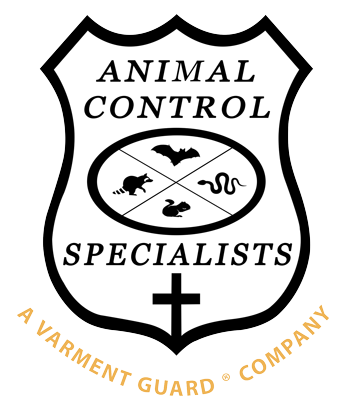Wildlife control and pest control may sound similar, but they serve different purposes. Wildlife control focuses on managing and removing wild animals that are causing problems or posing a threat to humans or their property. This includes creatures like raccoons, squirrels, bats, and birds. On the other hand, pest control deals with the elimination and prevention of insects, rodents, and other organisms that are considered pests. These can include ants, cockroaches, termites, bed bugs, and rats. While wildlife control aims to relocate animals safely and humanely, pest control often involves the use of chemicals or traps to eradicate pests. Both practices are essential for maintaining a healthy and safe environment, but they require distinct approaches to address their respective challenges.
Wildlife Control vs Pest Control: What’s the Difference?
Understanding Wildlife Control
When it comes to dealing with unwanted visitors on your property, it’s essential to know the difference between wildlife control and pest control. While both involve managing creatures that can cause damage or pose a threat, there are distinct differences in their approaches and objectives.
Wildlife control primarily focuses on handling animals that are considered wild or non-domesticated. These can include raccoons, squirrels, bats, skunks, birds, and even larger mammals like deer or coyotes. The goal of wildlife control is to ensure the safety of both humans and animals, minimizing conflicts and preventing any harm that may arise from these encounters.
The Importance of Wildlife Control
Wildlife control operators are trained professionals who understand the behavior, biology, and habitats of various wildlife species. This knowledge allows them to employ humane and effective methods for managing animal populations. It is crucial to prioritize the well-being of these animals while also addressing any concerns they may pose to humans or property.
One of the primary reasons wildlife control is necessary is to prevent damage to homes and structures. Wild animals can cause significant destruction by chewing through wires, damaging insulation, or creating nests in attics. Additionally, they may carry diseases or parasites that can be transmitted to humans or pets.
Wildlife control operators employ a range of techniques to manage these situations. This can involve safely trapping and relocating animals, implementing exclusion methods to prevent re-entry, or using deterrents to discourage unwanted visits. The ultimate objective is to maintain a balance between wildlife and human habitats while ensuring the safety and well-being of all parties involved.
Understanding Pest Control
Pest control, on the other hand, focuses on managing a broader range of creatures that are considered pests. These can include insects like ants, termites, cockroaches, or bedbugs, as well as rodents like mice and rats. The primary objective of pest control is to eliminate or prevent infestations that can cause damage, spread disease, or pose a threat to human health.
Pest control operators are experts in identifying and assessing pest problems. They understand the biology and behavior of these creatures and employ various methods to address infestations. This can include the use of chemical treatments, traps, or exclusion techniques to eliminate pests and prevent future invasions.
The Importance of Pest Control
Pest control is essential for maintaining a healthy and safe living environment. Pests can contaminate food, damage structures, and transmit diseases. They can also cause significant financial losses for homeowners or businesses if left unaddressed.
Pest control operators work diligently to identify the source of infestations and develop customized strategies to eliminate pests effectively. Their expertise allows them to use the most appropriate and environmentally friendly methods for each situation. By targeting the root cause of the problem, pest control professionals ensure long-term solutions that minimize the use of harmful chemicals and protect both human health and the ecosystem.
Conclusion
In summary, while both wildlife control and pest control deal with unwanted creatures, their objectives and approaches differ significantly. Wildlife control focuses on managing non-domesticated animals to minimize conflicts and ensure the safety of humans and wildlife alike. On the other hand, pest control aims to eliminate or prevent infestations of insects and rodents that pose risks to human health and property. Both wildlife control and pest control play crucial roles in maintaining a harmonious coexistence between humans and the natural world.
Contact For Wildlife Control Help
If you are in need of animal removal services, do not hesitate to give us a call at Animal Control Specialists, LLC. Our team of trained professionals is ready to assist you with any wildlife issues you may be facing. We understand the importance of prompt and efficient service when it comes to dealing with unwanted animals on your property. With our expertise and experience, we can safely and effectively remove any wildlife intruders and implement preventive measures to ensure they do not return. Your satisfaction is our top priority, so give us a call today at (330) 608-1718 and let us take care of your animal removal needs.
